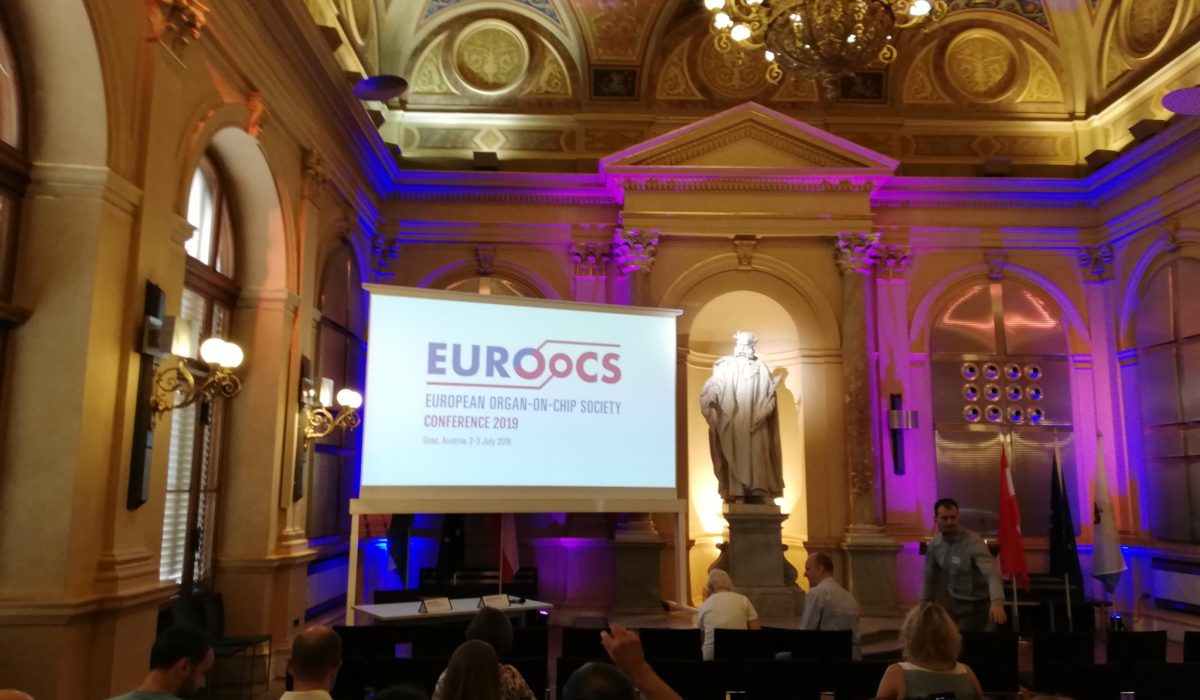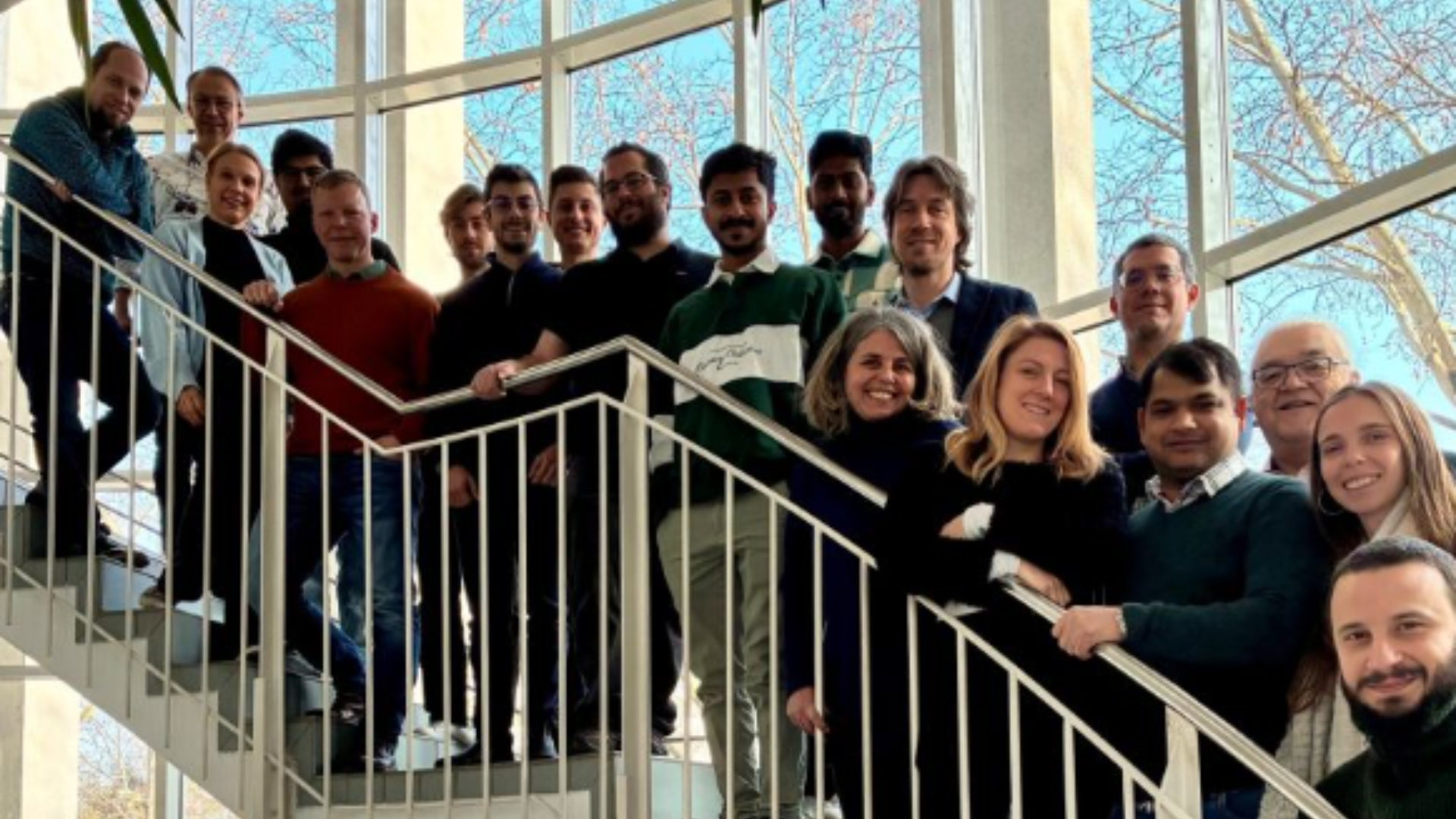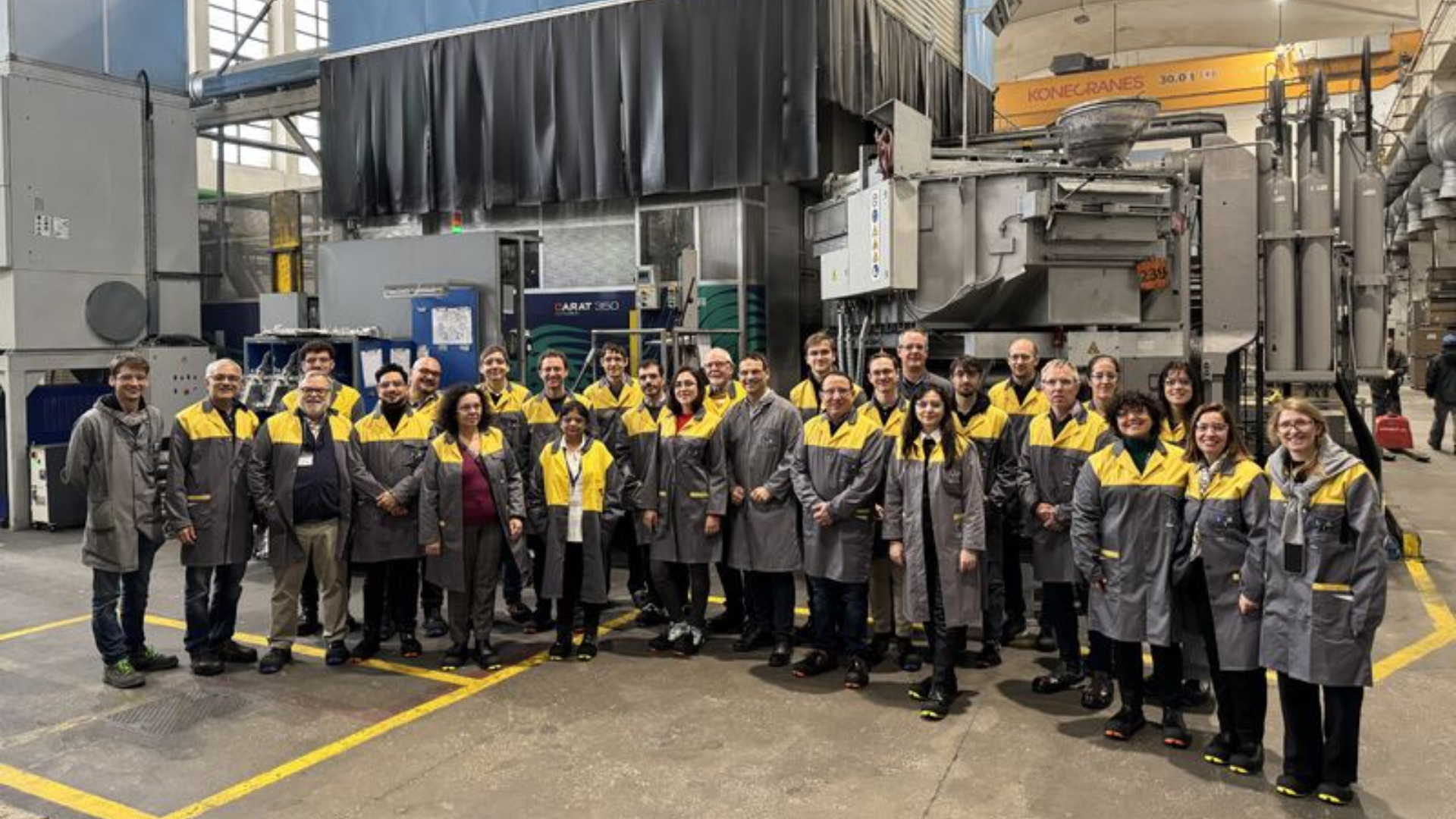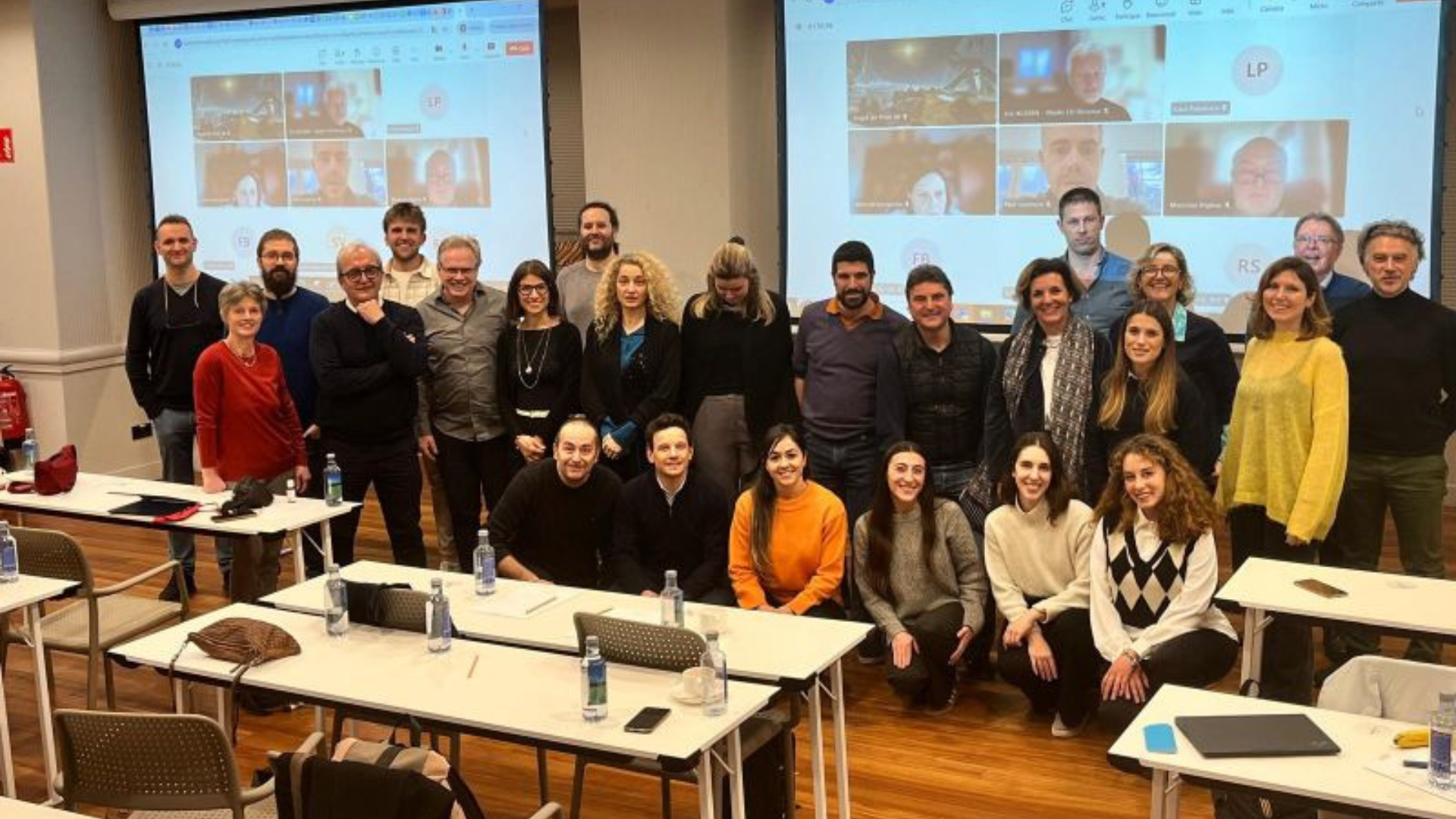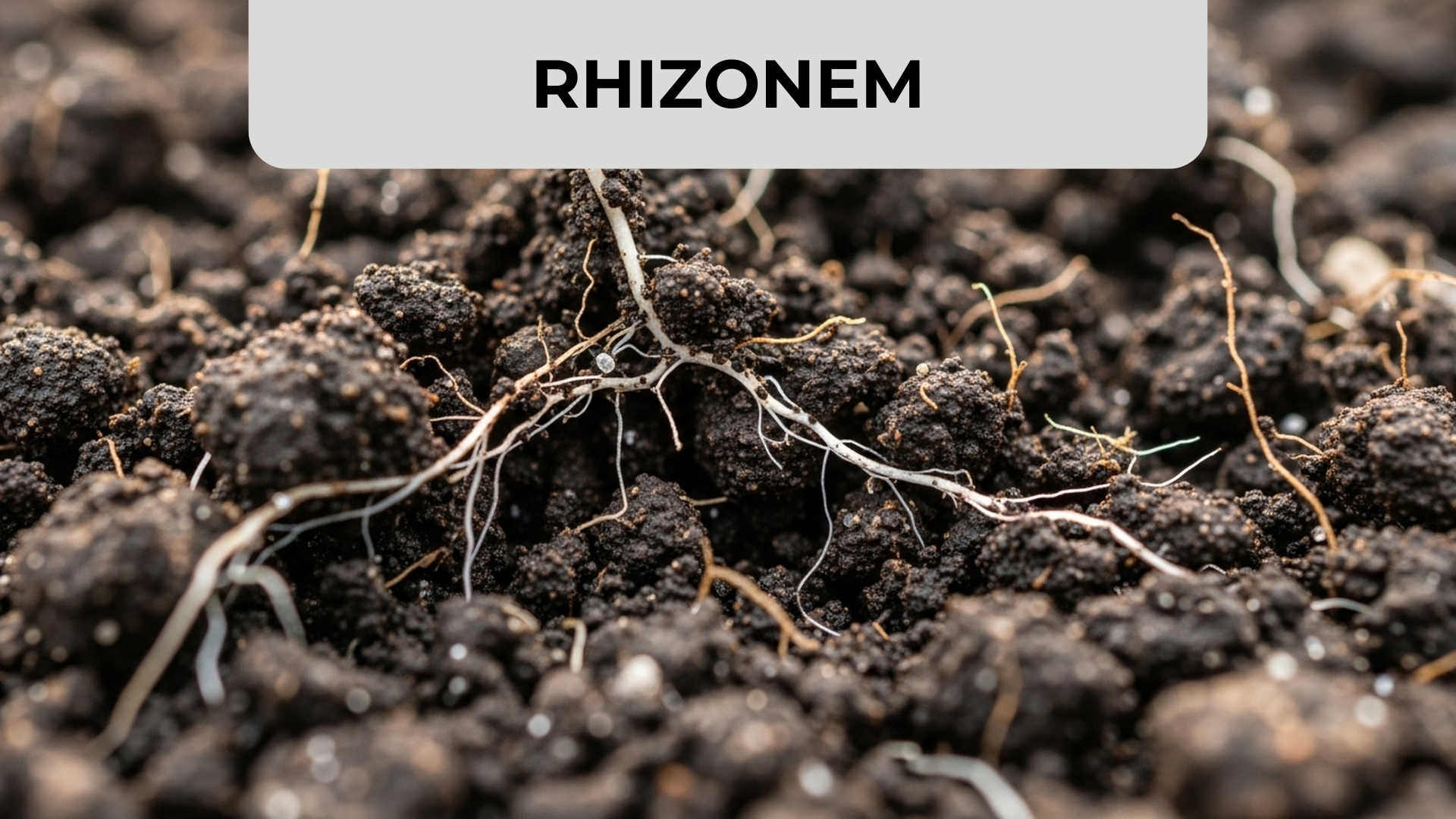The Diagnostic Devices research group of Leitat, part of the Energy and Engineering Business Unit, took part in the 2nd European Organ-on-Chip Conference (EUROoC 2019), which took place in Graz (Austria) on the 2nd and 3rd of July.
During the conference, the research group presented the latest results about 3D printed microfluidics for antidrug-antibody detection of autoimmune diseases achieved in the framework of the AMI Project.
Below the abstract of the poster: “The ability to fabricate a complete 3D microfluidic device in a single step from a computer model has obvious attractions. Combination of 3D printing and microfluidic technology in organ-on-chips provides a more efficient choice for building complex flow channels or chambers, as well as the ability to create biological structures with a 3D cell distribution, heterogeneity and tissue-specific function. In this work we have used computational fluid dynamics (CFD) and novel additive manufacturing techniques to fulfil biosensor and cell culture microfluidic requirements. As a result, we have integrated an automated microfluidic system on a nanoscale biosensing platform for the assessment of the immune reaction against biologicals targeted to inflammatory pathologies.”
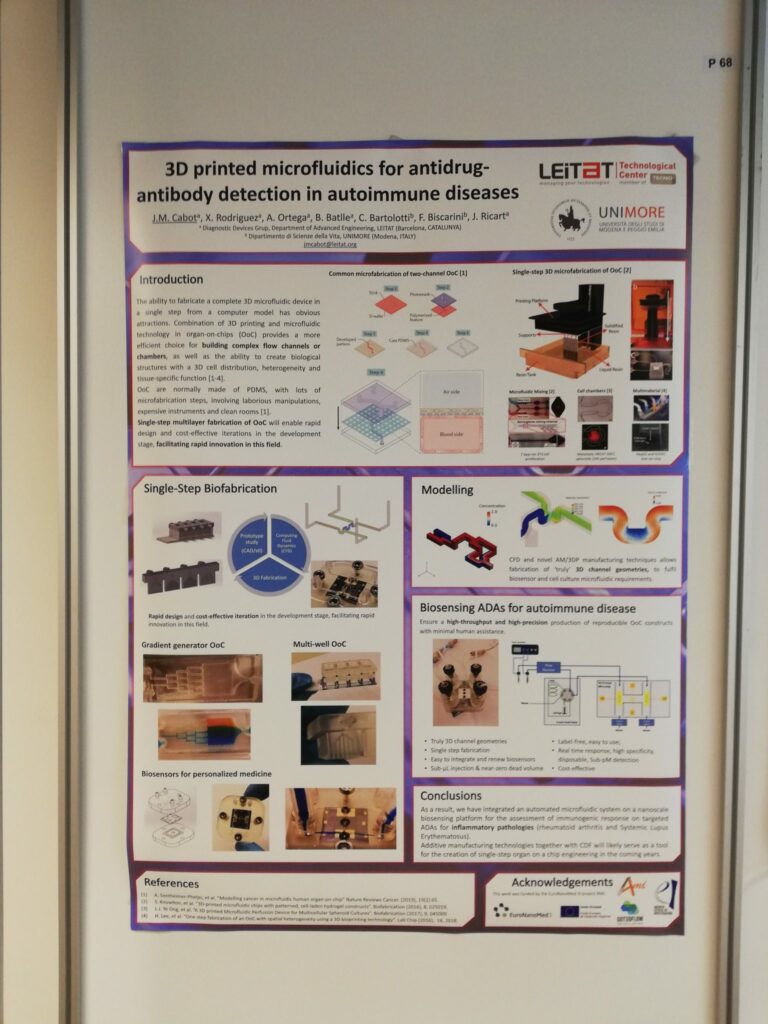
The EUROoC conference series aims to gather the research leaders in the emerging field Organs-on-Chip (OoC) with a special focus on young and upcoming scientists. The extremely interdisciplinary field of OoC research is rapidly growing while new and innovative systems are constantly being developed. However, a variety of engineering challenges are remaining, which the OoC field has to address as a whole to enable a sustainable growth of this breakthrough technology.
The EUROoC is a scientific meeting focused on the challenges in the process of designing, fabricating, and implementing microphysiological cell culture systems addressing topics such as microfabrication of 3D matrices, integration of miniaturised sensors, microfluidic interfacing, cellular engineering, parallelization and automation.
Topics
EUROoC 2019 Conference covers all aspects related to the research, development and application of Organ-on-Chips. Scientists and developers are invited to submit their original contributions in one or more of the following topics:
• Micro- and Nanoengineering
• Microfluidic interfacing
• Actuators for dynamic culture environments
• Integrated sensors
• Cellular engineering
• 3D cell culture environments
• Scaling
• Automation
• User-friendliness

